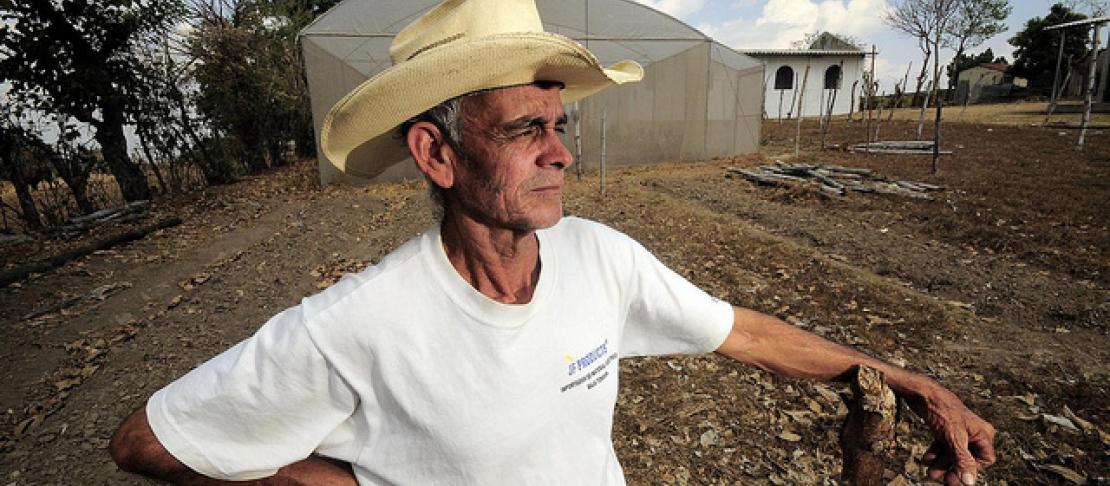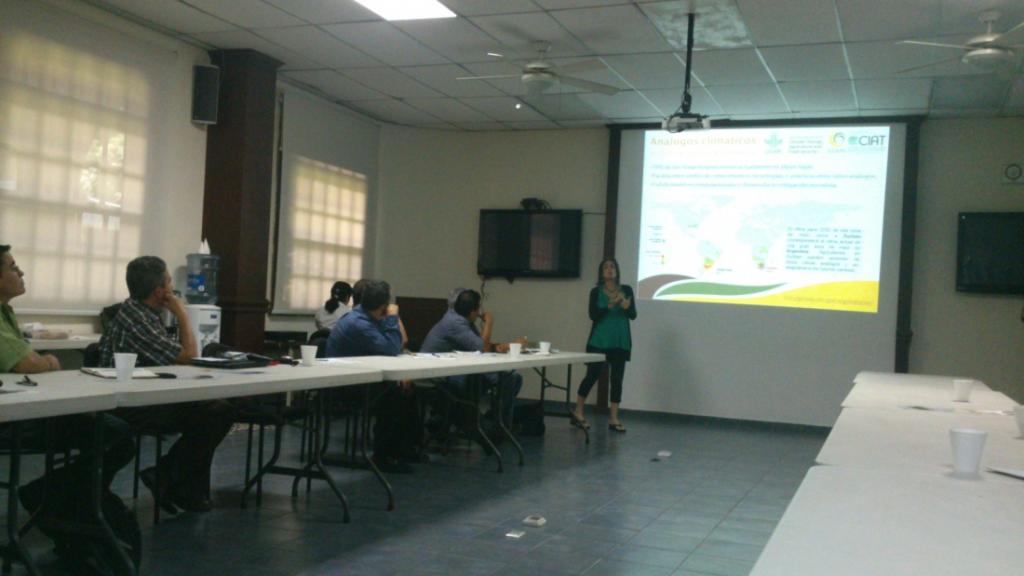Climate change and agriculture in Central America: identifying core challenges

Guatemala, El Salvador, Honduras and Nicaragua have high agricultural potential but have been hard hit in recent years by extreme weather events such as hurricanes and tropical storms. People still remember the devastation caused by Hurricane Mitch in 1998. Thousands of people died, vast areas were flooded and crops were destroyed. ‘El Niño’ and ‘La Niña’ phenomena have caused long periods of drought and flooding, extreme and prolonged frost, destroying crops and livelihoods.

Ana María Loboguerrero, Regional Leader for CCAFS Latin America, presents the program in one of the sessions. Photo: D. Martínez (CCAFS)
In August 2013, a team from the CCAFS regional office in Latin America met with representatives from the ministries of agriculture in each of the four countries and local and regional authorities working on climate change and agriculture. Together, the participants identified key concerns in the region relating to climate change and agriculture.
These key concerns include:
- Guatemala has enacted legislation relating to climate change mitigation and adaptation, but needs more coordination and support in applying policies to farmers.
- Discussions in El Salvador centred on the eastern region, which is very wet during the rainy season but suffers long periods of drought during the dry season. This area will be a focus for work to develop practices to help farmers to adapt to climate change.
- Key issues in Honduras included the need for training in topics such as techniques for adaptation to climate change, improved extension practices to transfer knowledge to farmers and community education for farmers.
- The main problem facing agriculture in Nicaragua is its low productivity. This is in large part related to farmers’ lack of access to credit, which restricts their ability to adopt improved practices.
The CCAFS team explored opportunities for helping the countries address these issues. One area identified is in the exchange of experiences on the best way to communicate useful and timely climate information to small-scale farmers.
Following up on this, in September 2013 representatives of Nicaragua and Colombia visited the CCAFS project in Senegal, which is working with local institutions to develop and deliver seasonal forecasts to local farmers.
CCAFS is also offering training on new methodologies such as Standard Assessment of Mitigation Potential and Livelihoods in Smallholder Systems (SAMPLES).
SAMPLES gathers data on greenhouse gas emissions under smallholder conditions and mitigation potentials of alternative production systems. The aim is to identify options that would both mitigate climate change and improve the lives and livelihoods of smallholder farmers.
Learn more about SAMPLES: From field to landscape: Tackling mitigation and livelihoods with help from farmers
The CCAFS Latin America team is convinced that the farmers, national programmes and other stakeholders in Central America are well set to find answers to the challenge of climate change. The role of CCAFS is to support their efforts to mitigate and adapt to climate change in the most vulnerable areas.
A core activity will be to consolidate and facilitate sharing of technical and scientific information among all the stakeholders to ensure they are able to take the right decisions and improve food security for all in the region.
José Luis Urrea works as Communications Officer at the CGIAR Research Program on Climate Change, Agriculture and Food Security (CCAFS) Latin America office.



